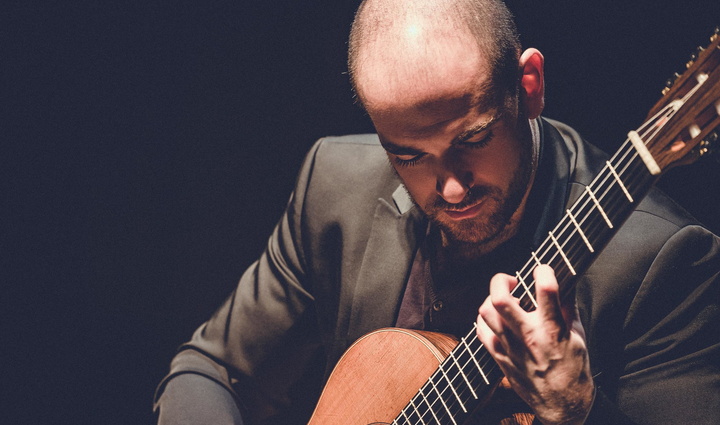In Pursuit of a Common Music Intelligence – Yale-Founded tonebase Grows Its Influence
Igor Lichtmann started his music career playing electric guitar in heavy metal bands in Germany. But his mother, a professional pianist, knew the value of top-notch teachers and when Lichtmann took an interest in classical guitar at age 17, she encouraged him to aim high.

He soon found himself auditioning with 50 others in Salzburg for the opportunity to take lessons with American guitar virtuoso and Yale alum Eliot Fisk, direct disciple of Andres Segovia and the founder of Yale’s guitar department. Lichtmann was the only student selected. He overcame similarly daunting odds when he later applied for a position to study at Yale School of Music, where he will graduate in 2018 with a Master’s in Musical Arts.
Having discovered firsthand how difficult it was for budding musicians to learn from the greatest performers Lichtmann was led, along with fellow Yale School of Music student Chris Garwood and current Yale undergrad Abhi Nayar, to found the startup tonebase, a platform where anyone can learn from the world’s best performers. Last year, tonebase participated in a Yale Entrepreneurial Institute Fellowship, where they received mentorship and funding to develop their venture. Currently, Lichtmann serves as an Innovation Advisor for the Tsai Center for Innovative Thinking at Yale (Tsai CITY), advising another early-stage team on business decisions.
One of the core tenets of tonebase, he says, is the need for a variety of knowledge in the world of music. “You can’t apply the classroom experience to music,” says Lichtmann. “It’s not like teaching math. There are so many angles and variables. With music, you are trying to arrive at a ‘common intelligence.’”
The site, which features 40 leading classical guitarists offering master classes in how to play standard works of music or master specific techniques, currently has 3,000 registered users. The cofounders are in the process of transitioning the site from a free to a subscription model and the emphasis is on quality videos, hard-to-access performers, and an interactive component that allows users to get personal feedback from the masters. In the future, the cofounders hope to expand tonebase’s platform to other instruments and styles of music, and potentially beyond, to screenwriting, design and other mediums.
Lichtmann related the story of a 9-year-old performer from Connecticut who was struggling with a particular piece of music and, with his dad’s assistance, sent a video of his performance through tonebase to Rene Izquierdo, an award-winning classical guitarist who teaches at Peck School of the Arts at the University of Wisconsin-Milwaukee. The famed guitarist returned a 25-minute video reply showing the boy how to improve his shoulder and arm positioning. “Within 20 minutes, the kid sent a follow-up video, and his playing was transformed,” Lichtmann says.
This sort of transformation, possible until now for only the small fraction of music students with access, is the purpose of tonebase. “There is so much demand for these people, but physically and time-wise they are limited,” Lichtmann says. The musicians who teach through tonebase are not only paid for their participation, but they are able to expand the scope of their influence. “They share their ideas and the way they think about music,” Lichtmann says. “And they have a means to reach the next generation who want to learn from them.”
CONTACT: Brita Belli, Communications Officer, Tsai Center for Innovative Thinking at Yale, (203)804-1911, brita.belli@yale.edu.